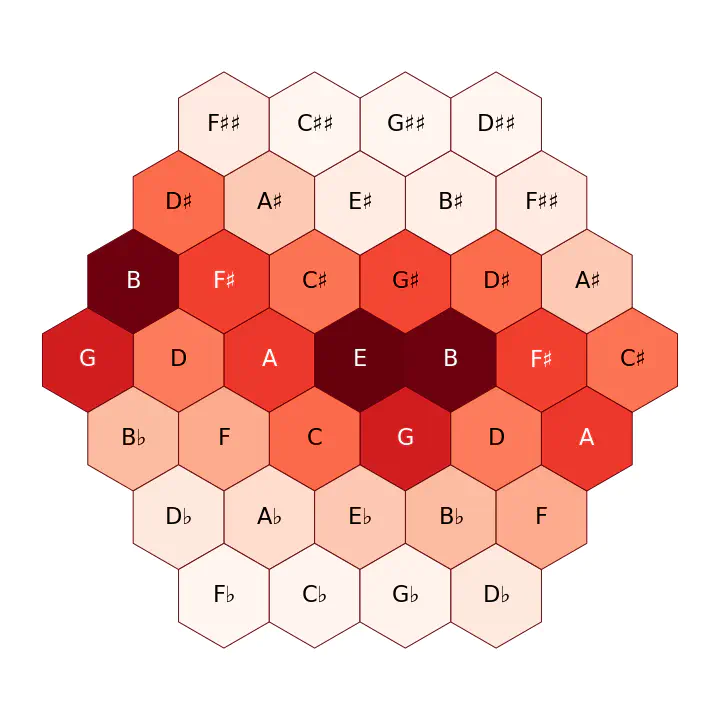Abstract
A central debate of 19th-century music theory concerns graphical depictions of tonal relations, commonly called the Tonnetz. More recently, Neo-Riemannian theory (NRT) has utilized it to analyze triadic progressions and minimal voice-leading in the harmonic idioms of 19th-century composers. While NRT elucidates important aspects, it has several limitations. First, it relies on a fundamentally triadic texture, which necessitates a harmonic reduction that lies outside the scope of NRT. Second, drawing Tonnetz diagrams can be tedious and time-consuming. Third, these analyses usually show the presence or absence of triads but not the relative frequencies. Finally, they are often created only for short excerpts and rarely for entire pieces.
This workshop introduces the free and open-source Python library and demonstrates how it can be used to address the above issues. It allows to analyze digital encodings of musical pieces by means of graphical representations such as the circle of fifths and the Tonnetz, each of which can be understood as a “tonal fingerprint”. They can be used to reveal particularly interesting tonal aspects within a piece, e.g. its overall tonality (diatonic vs. chromatic); octatonic, hexatonic and other extended tonal relations; or the centrality of certain sonorities, as well as visual comparisons between, e.g. diatonic vs. chromatic pieces. The library is thus not only a useful tool for music analysts but also a pedagogical resource for students, fostering a deeper understanding of computational approaches to music analysis in general as well as tonal relations on the Tonnetz in particular.
The workshop is split into a short presentation, a hands-on part of guided exercises, and a final discussion about the limitations and benefits of computational music analysis. Participants are not required to have any prior programming experience and do not need to install any software before the workshop except an up-to-date internet browser.
Date
Oct 1, 2020 — Oct 4, 2020
Location
Hochschule für Musik Detmold [online]
